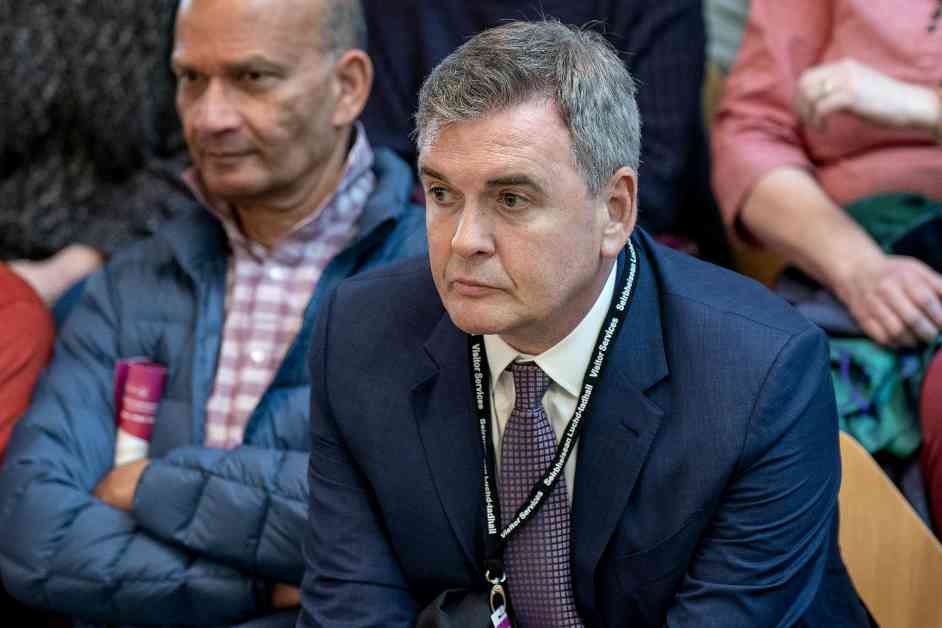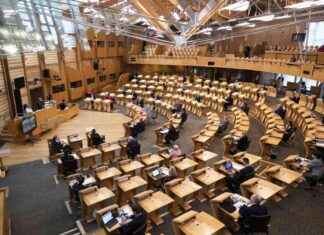Businessman and former Apprentice star, Mike Soutar, recently criticized the Scottish Government’s tax policies, particularly the SNP’s additional income tax rate. Speaking at the Scottish Chambers of Commerce annual business address, Soutar highlighted the challenges faced by companies in the current economic climate. He pointed out that the combination of increasing National Insurance contributions from the Westminster government and the additional income tax imposed by Holyrood makes it difficult for businesses to attract top talent.
Soutar’s concerns echo those raised by Sandy Begbie, Chief Executive of Scottish Financial Enterprise, who called for tax rates in Scotland to be aligned with those in England. The Scottish Government introduced a new advanced income tax rate of 45% on incomes between £75,000 and £125,140, with the top tax rate set at 48%. This means that individuals in Scotland earning more than £26,562 pay higher income tax compared to their counterparts in the rest of the UK. The difference is most significant for those near the threshold between the advanced and top tax bands, with someone earning £125,000 paying £5,221 more tax than if they were in England.
A recent report by the Institute for Fiscal Studies (IFS) cautioned that the tax changes in Scotland may have slightly reduced revenues for Holyrood. The IFS recommended that the government pause any plans to increase income taxes for higher earners in the upcoming budget. Despite these challenges, Finance Secretary Shona Robison defended the tax policies, stating that more taxpayers have come to Scotland than left, including high-earning individuals.
While some Scottish businesses have felt the impact of the income tax policy, others have reported minimal effects. Soutar emphasized that businesses are facing global challenges such as the aftermath of the Covid pandemic, conflicts in Ukraine and the Middle East, a worldwide cost of living crisis, trading outside the European zone, and evolving trade tariffs under the new US president. However, he remained optimistic, urging industry leaders to see economic downturns as opportunities to innovate and launch new products and services.
Soutar encouraged businesses to focus on customer needs, streamline operations, and design for the future during tough times. He emphasized that innovation is key to thriving in a competitive market and that businesses should be prepared to adapt and evolve. Despite the challenges posed by tax policies and global uncertainties, Soutar’s message resonated with the audience, highlighting the importance of resilience and creativity in navigating turbulent economic conditions. As the business landscape continues to evolve, Soutar’s insights serve as a reminder that adaptation and innovation are essential for long-term success.
































